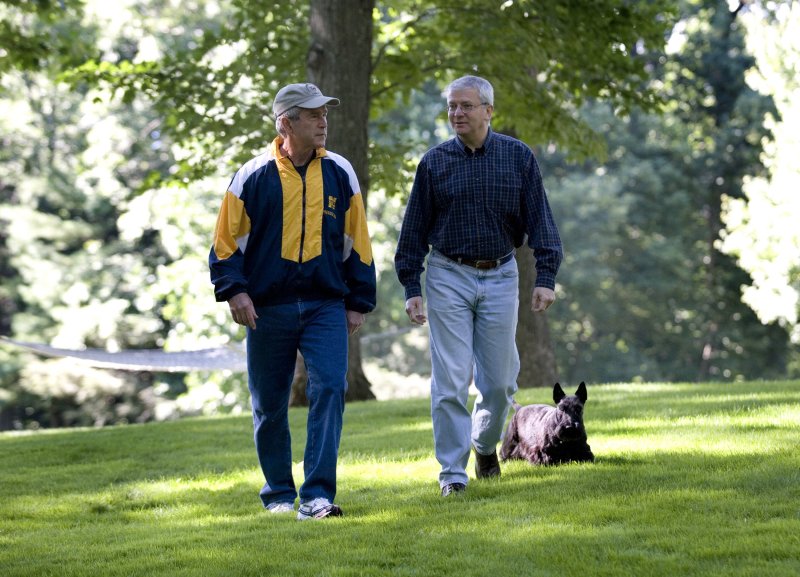Physicians who give colonoscopies improve if given report cards.
U.S. President George W. Bush (L) and Chief of Staff Josh Bolten walk with the President's dog, Barney, at Camp David on July 21, 2007. President Bush underwent a colonoscopy while at Camp David where doctors found and removed five small polyps. (UPI Photo/Eric Draper/White House Press Office) |
License Photo
INDIANAPOLIS, June 21 (UPI) -- Giving physicians who perform colonoscopies a quarterly report card is associated with an improvement in performance criteria, U.S. researchers say.
Endoscopists at the Roudebush Veterans Affairs Medical Center in Indianapolis who participated in the study showed an overall precancerous polyp detection rate increase from 44.7 percent to 53.9 percent, and a cecal intubation rate increase from 95.6 percent to 98.1 percent, the study said.
Lead author Dr. Charles J. Kahi of the Indiana University School of Medicine and Roudebush Veterans Affairs Medical Center in Indianapolis said these two metrics were validated measures of colonoscopy performance quality.
Colonoscopy examines the lining of the lower intestinal tract called the colon or large intestine. When used as a colon cancer prevention method, colonoscopy can find potentially precancerous growths called polyps and remove them before they turn into cancer.
"Our study differs from previous research in several aspects. First, our report card initiative is based in an academic setting and involves a relatively small group of endoscopists. It includes 'hard' quality indicators such as precancerous polyp detection rate and cecal intubation, but also information regarding documentation of bowel preparation quality, patient assessment before the procedure, and withdrawal time," Kahi said in a statement.
"Second, there were no financial incentives or penalties for achieving or not achieving preset targets. Third, the report cards are blinded to individual endoscopists, with minimal feedback administered confidentially as needed. Fourth, the intervention is administered regularly and relatively frequently, at three-month intervals."
The study appears in the June issue of GIE: Gastrointestinal Endoscopy.















